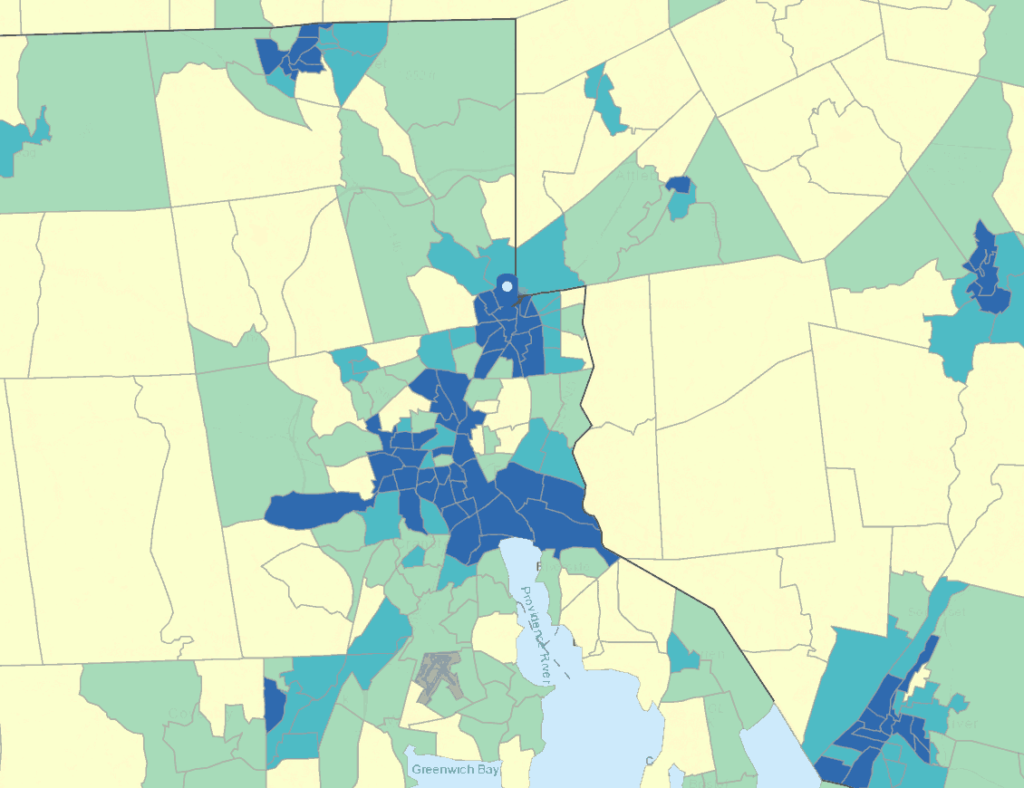“We’ve crossed the 30,000 doses mark… as of 9am,” said Dr. Philip Chan of the RI Department of Health (DoH) in a press briefing late in the afternoon on Friday, January 8. “This morning, 31,541 doses have been administered and 1,798 people were fully immunized, meaning they received their second and final dose of the COVID-19 vaccine.”

Currently, RI is in Phase 1 of its vaccination plan, having begun the first three of five sub-phases. New sub-phases begin before the prior sub-phase has completed, so for example Phase 1.1 that includes nursing home staff and residents is still in progress although Phase 1.3 that includes firefighters, police officers, and hardest-hit communities has started. Phase 1.4 that includes dentists, dialysis center staff, and funeral home workers, is expected to start the week of January 25. Phase 1.5, otherwise healthy people at least 75 years old, is expected to start in February or March. The limiting factor is vaccine supply.

“We wish there was more vaccine available to people in Rhode Island right now, where we’re efficiently distributing what’s been given to us by the federal government and we’re limited by the doses that we’re getting nationally,” Chan said. “Currently, though, we are getting enough vaccine to vaccinate roughly 1.5% of the entire population of Rhode Island a week. It’s not a lot, but it’s definitely some and we’re getting there. We are hopeful that the supply will open up soon, and there’s some evidence that this may happen in the near future.”

Both of the two vaccines currently authorized, from Pfizer and Moderna, require two doses administered 3 to 4 weeks apart for full immunity. The Trump administration has been holding back half of the vaccine supply to make sure there are sufficient second doses, but the incoming Biden administration has been discussing a change in policy to ship out all vaccine as quickly as possible in hopes that production will increase in time to meet demand for second doses. The Strategic Advisory Group of Experts (SAGE) within the World Heath Organization (WHO) last week strongly cautioned against skipping second doses, a suggestion that has been made by some as a means of extending the supply, citing the absence of clinical data for extending the time between doses beyond six weeks. (There is no maximum interval, and if an individual misses the six-week window then they should still get the second dose as soon as possible.) The UK has contemplated making a 12-week interval standard, but there is no clinical data to support this.

RI has not yet specified eligibility for Phase 2. With the current supply of slightly fewer than 14,000 doses per week, it will take more than 21 weeks to fully vaccinate with two doses the estimated 150,000 people in Phase 1, implying a timeline extending into May or June without a substantial increase in supply. The RI DoH Vaccine Sub-Committee at the regular meeting on the morning of Friday, January 8, discussed the principles by which Phase 2 priorities could be allocated, taking into account age, occupation and geography. A number of members pointed out that the Social Vulnerability Index (SVI) is already calculated by the CDC by census tract, and would provide direct socio-economic risk data rather than using geography as a proxy for it.

RI stands in 13th place among the states in percentage of vaccine first doses administered out of those received, 30,264 of 72,175 (41.9%), as of Thursday, January 8, according to data from the US Centers for Disease Control and Prevention (CDC). RI is also in 13th place for number of vaccinations administered per capita, 2,857 per 100,000 population. While RI is well ahead of the nation as a whole, which has administered 6,688,231 of 22,137,350 first doses (30.2%), the state lags most of its New England neighbors in per capita first doses per 100,000 population, behind Vermont (4th, 3,579), Connecticut (7th, 3,261), Maine (8th, 3,082), and New Hampshire (9th, 3,079), but ahead of Massachusetts (22nd, 2,197). By contrast, states in the Deep South (Georgia, Mississippi, Alabama, South Carolina, Arkansas) at the bottom of the list have both utilization rates of their supplied doses and per capita vaccination rates less than half that of RI.
A major concern throughout RI DoH is the need to get accurate and authoritative information out to the public. “We’re starting to get reports and have been getting reports from across the country, including here in Rhode Island, of simply inaccurate and false information related to vaccines and other aspects of COVID-19… I do want to, again, encourage people to seek out information from reliable sources, like your primary care provider, and not from social media or other sources that can really be questionable,” Chan said. “I want to again reiterate to people that myself along with my other physician colleagues, nurse practitioners, health care professionals, have taken an oath to keep people healthy. Literally our job is your health, and we base our actions and advice on science and evidence.”

